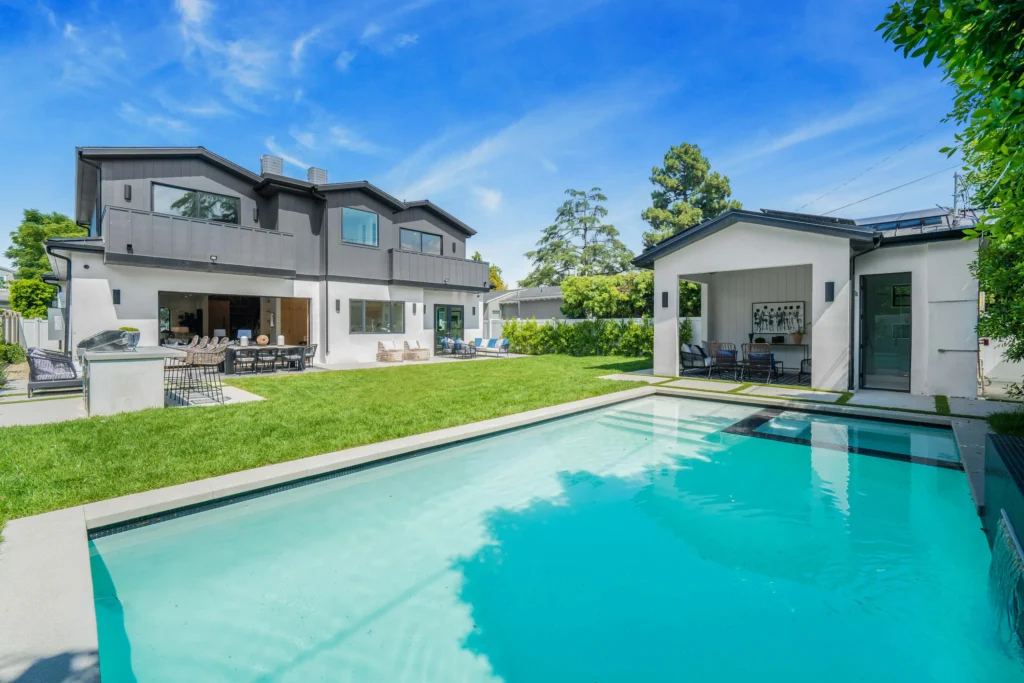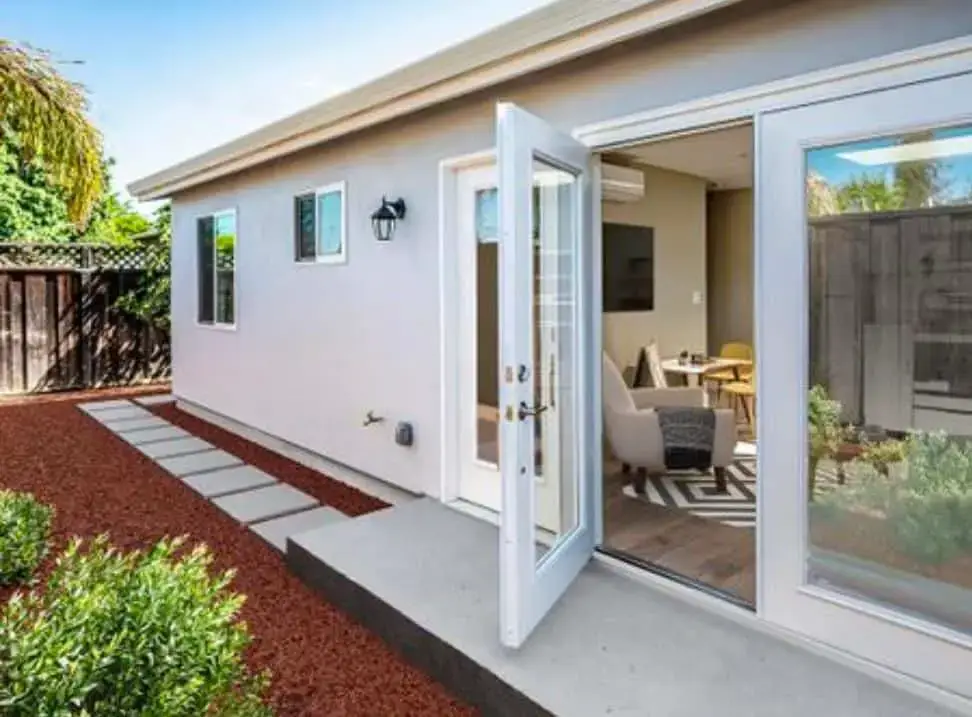Rentals ADU in Los Angeles – The Basics
Renting Out Your Cost of ADU in Los Angeles
Renting out your Accessory Dwelling Unit (ADU) in Los Angeles can be a lucrative venture, but it’s essential to understand the regulations and costs involved. Here’s a comprehensive guide to help you navigate through the process.
Keyword: ADU in Los Angeles
Regulations for Renting Your ADU in Los Angeles
In Los Angeles, homeowners can rent out their ADUs, but they must adhere to certain regulations set by the city:
- Obtaining Permits: Ensure your ADU meets all safety and building code requirements and obtain necessary permits from the Los Angeles Department of Building and Safety.
- Short-Term Rentals: If you plan to engage in short-term rentals, such as Airbnb, you must register with the city and obtain a home-sharing permit. Your ADU must have an occupancy certificate issued before January 1, 2017.
- Primary Residence: Your ADU must be your primary residence for more than six months of the year. Non-primary homes are ineligible for registration.
- No Affordability Restrictions: The property should not be subject to the Rent Stabilization Ordinance (RSO) or have affordability provisions.
- Landlord Approval: If you’re renting, obtain written approval from your landlord.
- Transient Occupancy Tax (TOT) Registration: Hosts must register to pay TOT or list exclusively on approved hosting platforms.
- Extended Home-Sharing Permit (EHS): For year-round rentals, apply for an EHS, which allows rental activity for 365 days a year.
Long-Term Rentals and RSO Compliance
If your ADU falls under the Rent Stabilization Ordinance, ensure compliance and pay the annual registration fee per unit.
Keyword: Cost of ADU in Los Angeles
Cost of ADU in los angeles Involved in Building an ADU
Building an ADU in Los Angeles incurs various costs, including:
- Construction Costs: The cost of building an ADU can vary based on size, materials, and labor. On average, construction costs range from $100,000 to $300,000.
- Permit Fees: Permit fees vary depending on the city’s regulations and the complexity of your ADU project. Expect to pay several thousand dollars for permits.
- Utility Connections: You may need to connect your ADU to utilities such as water, electricity, and sewer, which can add to the overall cost.
- Design and Architectural Fees: Hiring an architect or designer to create plans for your ADU incurs additional expenses.
- Landscaping and Exterior Features: Landscaping, outdoor amenities, and exterior finishes contribute to the overall cost of your ADU.
- Financing Costs: If you’re taking out a loan to finance your ADU project, factor in interest payments and loan fees.
By understanding the regulations and costs associated with renting out your ADU in Los Angeles, you can make informed decisions and maximize the potential of your investment.

Navigating ADU Regulations in Los Angeles: Permits and Legal Considerations
When planning to rent out your property, understanding the legal landscape is crucial. Let’s delve into the essential permits and legal considerations for a smooth ADU rental experience in Los Angeles.
Permits for Rentals ADU in los angeles
- Home-Sharing Ordinance: For short-term rentals, register on the city’s portal and obtain a home-sharing registration number to comply with the Home-Sharing Ordinance.
- Rent Stabilization Registration: If your property falls under rent stabilization ordinances, registration may be necessary.
Legal Considerations for ADU Rentals
- Home Sharing in LA City: Short-term rental activities are permitted only through the Home Sharing Ordinance. Hosts must register and pay applicable fees. Extended Home Sharing permits are available for rentals exceeding 60 days.
- Local Regulations: Check with local authorities if your area permits short-term rentals. Some regions may have different regulations than LA City.
- Rent Stabilization Ordinance (RSO): Your ADU may fall under the RSO based on its style and the primary dwelling’s construction year. Annual fees may apply.
- Consult Local Administration: Before starting an ADU rental project, verify with local authorities for any area-specific regulations.
Regulations to Consider Before Building an ADU
- Zoning Regulations: Ensure your property’s zoning allows for ADUs and check for specific requirements or restrictions in your area.
- Permitting and Building Codes: Obtain necessary permits and adhere to local building codes to avoid penalties.
- Size and Design Restrictions: Check limitations on ADU size, height, and design in your area.
- Parking Requirements: Off-street parking for ADUs may be necessary, so comply with local ordinances.
- Owner Occupancy Rules: Some jurisdictions require homeowners to reside on the property for a certain period annually.
- Rental Regulations: Familiarize yourself with local rental regulations, including rent control laws if applicable.
- Historic Preservation Rules: Consider additional rules if your property is within a historic district.
- Fire and Safety Requirements: Adhere to fire safety regulations, including proper emergency exits and smoke detectors.
- HOA Rules: Check your HOA’s guidelines to avoid conflicts before building your ADU.
Understanding and adhering to these regulations ensures a smooth ADU rental process in Los Angeles, helping you maximize the potential of your investment.

Profiting, Expenses, and Taxing
Determining Rental Prices for Your ADU in Los Angeles
Renting out your Accessory Dwelling Unit (ADU) in Los Angeles requires careful consideration of various factors to set an appropriate rental price. Here’s a breakdown of key considerations:
Market Demand: Factors like population growth, job availability, and housing trends influence demand, impacting rental prices.
Size and Amenities: Larger ADUs with multiple bedrooms, additional bathrooms, private entrances, outdoor areas, and parking facilities command higher rents.
Location: Proximity to amenities, schools, public transport, and attractions affects rental rates. Desirable areas generally have higher rents.
Condition and Quality: Well-maintained, modern ADUs with high-quality finishes and appliances typically warrant higher rents than simpler units.
To assist you further, we’ve compiled data from local listings to provide an overview of average rent prices based on area and ADU details. This information can help you gauge competitive pricing for your ADU rental.
West Los Angeles
- Studio ADU: $1,500 – $2,000 per month
- 1-bedroom ADU: $2,000 – $2,500 per month
- 2-bedroom ADU: $2,500 – $3,500 per month
Central Los Angeles
- Studio ADU: $1,300 – $1,800 per month
- 1-bedroom ADU: $1,800 – $2,300 per month
- 2-bedroom ADU: $2,300 – $3,000 per month
East Los Angeles
- Studio ADU: $1,000 – $1,500 per month
- 1-bedroom ADU: $1,500 – $2,000 per month
- 2-bedroom ADU: $2,000 – $2,500 per month
These rental ranges provide a starting point for determining the appropriate rent for your ADU based on its specifications and location. Adjustments may be needed based on specific amenities, market conditions, and other factors unique to your property.
How Much Can I Profit?
Adding and renting an ADU to your property can be a great way to increase your income. However, the profit you can make from an ADU will depend on several factors, such as its size, location, amenities, and the local rental market conditions.
ADUs can offer a return on investment (ROI) ranging from 5% to 20% or more, depending on the specific circumstances and local housing market. For example, in areas with high demand for rental properties, you can charge higher rents and achieve a higher ROI. Conducting market research and comparing rental rates for similar ADUs in your area can give you a better idea of potential rental income.
Also, to increase your income potential, understanding the local rental market trends is crucial for maximizing your profit. By leveraging historical data and projecting future rent increases, you can make informed decisions that enhance your return on investment (ROI).
Utilizing Historical Rent Data
One effective strategy is to analyze historical rent data in your area. Platforms like Rentometer or Zillow provide valuable insights into past rental trends. By examining how rents have evolved over time, you can identify patterns and project future increases. This historical perspective not only adds credibility to your rental projections but also highlights the potential for even higher rents in the future.
Projecting Future Rent Increases
By anticipating potential rent increases, you can better predict your Net Operating Income (NOI) and demonstrate the profitability of your ADU investment. In high-demand rental areas, the ability to charge higher rents can significantly boost your return on investment (ROI).
Conducting Market Research
Performing detailed market research is crucial for setting the right rental rates for your ADU. Look at rental prices for similar properties in your neighborhood to gauge market demand and pricing trends. This research will give you important insights into potential rental income, helping you establish rates that are both competitive and profitable for your ADU.
Recurring Expenses for Landlords
Understanding the ongoing expenses of being a landlord is key to making your ADU investment profitable. As a landlord, you will have several recurring costs to consider:
- Maintenance and Repairs: Regular upkeep is essential to keep your ADU in good condition.
- Insurance: Protect your property from liabilities and damages with appropriate insurance coverage.
- Property Management: If you prefer not to manage the property yourself, hiring a property management company is an option.
- Property Taxes: An ADU can increase your property’s assessed value, which may lead to higher property taxes.
- Utilities: If you cover utilities for your tenants, be sure to factor in these costs as well.
How Will Renting an ADU Impact My Taxes?
Investing in an ADU, like any other type of investment, comes with certain tax implications. It’s essential to understand these implications before you proceed. Consulting with a tax professional beforehand will help you navigate the complexities and ensure you’re fully prepared for any tax-related outcomes.

For personalized guidance and support, connect us.

